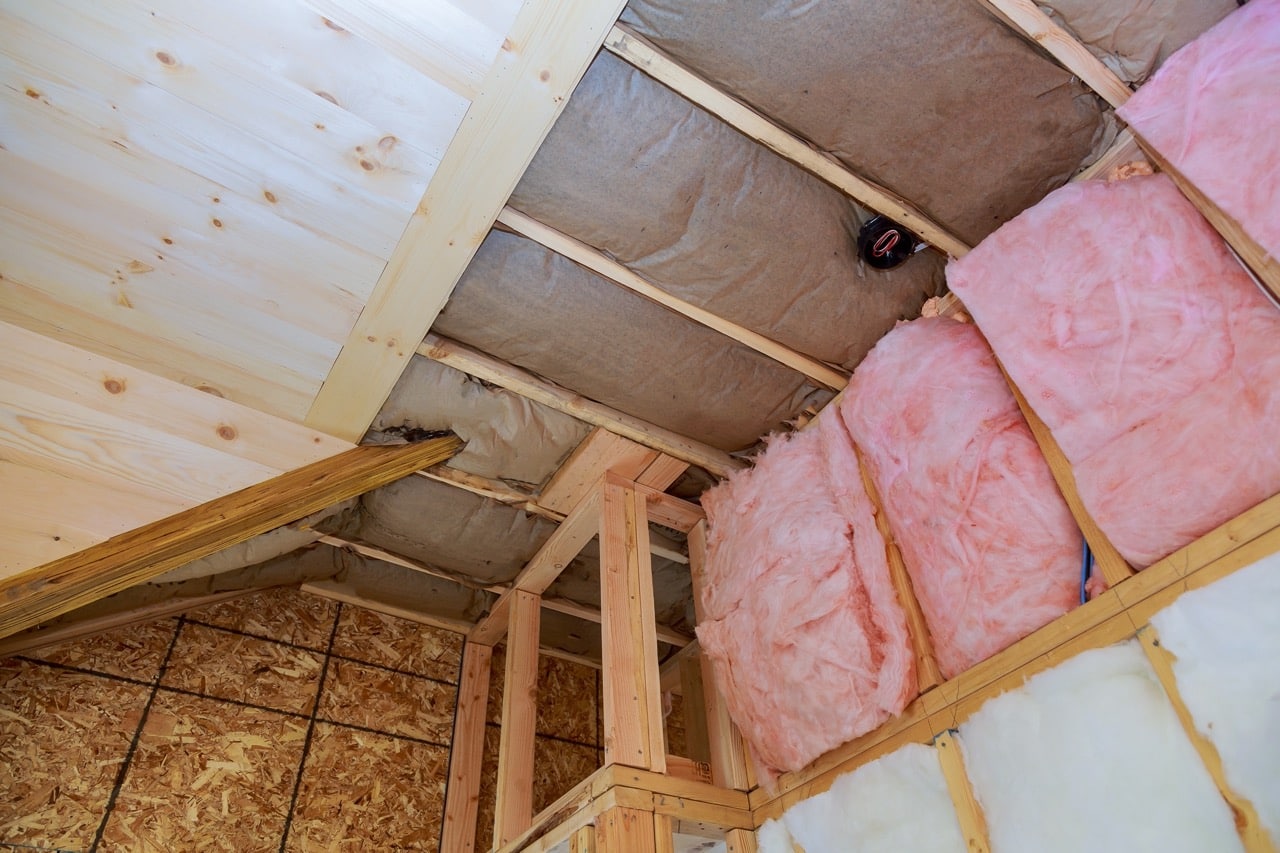13 Dec 2023
Insulating Your Buy-to-Let Property: Essential Tips
Have you considered the pros of proper insulation? Insulating a buy-to-let property can provide environmental and financial benefits for landlords.

As a landlord, you know that maintaining your buy-to-let property is key to keeping your tenants happy and attracting new ones. But have you considered the benefits of proper insulation? Insulating your property can not only reduce your environmental impact but also provide financial benefits for landlords. In this post, we will delve into the basics of property insulation, including different types of insulation materials and the role of roofing in insulation. We will also discuss the cost implications and tax benefits of insulating your buy-to-let property. So, whether you’re a seasoned landlord or just starting out, read on to understand why insulating your property should be at the top of your maintenance checklist.
Understanding the Importance of Insulating Your Buy-to-Let Property
Properly insulating your buy-to-let property can lead to significant energy efficiency improvements by reducing heat loss. This not only results in lower energy bills for both landlords and tenants but also contributes to higher EPC ratings, making the property more appealing to potential tenants or buyers. Additionally, well-insulated properties have an increased value and are in high demand due to their energy-saving trust and environmental friendliness, potentially reducing void periods. The Great British Insulation Scheme and new rules regarding EPC band E in Northern Ireland highlight the growing emphasis on energy-efficient residential properties. It’s essential to recognize the number of ways proper insulation can add value to your property, from free surveys to increased hot water system efficiency, ultimately benefiting both landlords and new tenants.
The Environmental Impact of Proper Insulation
Proper insulation plays a crucial role in reducing carbon emissions and contributing to environmental sustainability. By minimising energy consumption, insulation aligns with energy efficiency measures, promoting a more sustainable approach to property management. Effective insulation not only reduces heating bills but also encourages energy conservation, making it an essential element of environmentally conscious property ownership. Moreover, well-insulated properties boast higher energy performance certificate ratings, reflecting their superior energy efficiency. This not only benefits the environment but also positions the property as an attractive and energy-efficient option for potential tenants or buyers. Ultimately, insulation promotes energy efficiency, leading to lower fuel bills and demonstrating a commitment to environmental responsibility.
Financial Benefits for Landlords
Maximising the financial potential of your property goes beyond rental income and cost savings. Proper insulation can lead to substantial financial benefits for landlords. Energy-efficient properties contribute to higher property value, making it an attractive investment. Furthermore, well-insulated properties have the potential to attract tenants more quickly, reducing void periods and increasing rental income. Additionally, insulated properties may qualify for financial incentives or government schemes, offering landlords substantial savings. Consider that insulation can lead to higher rental yields, maximising the property’s financial potential. Ultimately, investing in proper insulation not only improves the energy efficiency of your property but also significantly enhances its financial prospects, aligning with the professional and informative tone.
The Basics of Property Insulation
Understanding the importance of different types of insulation materials, including mineral wool, solid wall, cavity wall, loft, and floor insulation, is crucial for property investors and landlords. Roof insulation plays a significant role in preventing heat loss and maintaining energy efficiency, contributing to the value of your property. Moreover, insulation measures, such as double glazing and wall insulation, impact your property’s energy performance certificate rating. This understanding is essential for new tenants, considering the energy performance of residential properties and complying with new rules and regulations.
Different Types of Insulation Materials
When considering insulating your buy-to-let property, it’s essential to explore different types of insulation materials. Cavity wall insulation contributes to reducing heat loss and improving energy efficiency, aligning with the objectives of the Energy Saving Trust. Similarly, loft insulation is crucial for energy efficiency and can lead to significant savings on heating bills, a point highlighted by the Great British Insulation Scheme. Moreover, floor insulation plays a vital role in maintaining a comfortable indoor environment and saving energy, benefiting both landlords and new tenants.
Solid wall insulation not only provides energy efficiency improvements but also impacts your property’s EPC band and the value of your property. Additionally, incorporating various insulation materials, such as triple glazing, is one of the number of ways to enhance energy efficiency measures and reduce heat loss, aligning with new rules and regulations.
The Role of Roofing in Insulation
Roofing insulation is a critical factor in improving energy efficiency and minimising heat loss. Property investors and landlords understand that effective insulation of roofing systems contributes to energy performance certificate improvements, positively impacting the property’s value. By reducing heating bills and aiding in energy conservation, insulated roofing systems play a crucial role in maintaining a comfortable indoor environment. Understanding the insulation value of roofing materials is essential for ensuring energy efficiency and making informed decisions about property investments. With the inclusion of NLP terms such as “energy saving trust,” “residential properties,” and “value of your property,” it’s clear that roofing insulation not only saves costs but also enhances the overall value and performance of the property.
Cost and Tax Implications of Property Insulation
Estimating the costs of insulation is essential for property investment decisions and enhancing energy efficiency. Landlords have the potential to claim insulation costs on taxes, providing significant financial benefits. New regulations, such as the MEES regulations, have a direct impact on insulation requirements and tax implications for property owners. The expenses involved in insulation, including solid wall insulation and new boiler installation, can significantly influence the financial returns of property investments. Similarly, the costs associated with insulation, such as heat pump and cavity wall insulation, play a crucial role in determining the overall financial performance of investment properties. These factors highlight the importance of understanding the cost and tax implications of property insulation for landlords and investors alike.
Estimating Insulation Costs
When evaluating property investment decisions, understanding and estimating insulation costs is crucial. The average cost of insulation, including VAT, directly impacts rental income and financial performance. Free insulation surveys play a pivotal role in estimating costs, guiding landlords in their investment decisions. Moreover, insulation cost estimation significantly influences energy efficiency improvements, ultimately impacting the value of your property. Seeking professional advice on insulation costs and leveraging energy company obligation schemes can further assist landlords in accurately estimating these costs. By carefully considering insulation expenses in residential properties, landlords can make informed decisions, potentially increasing the value of their property and attracting new tenants.
Can Landlords Claim Insulation Costs on Taxes?
Insulating your buy-to-let property can have financial benefits for landlords. Certain insulation costs, like solid wall insulation and cavity wall insulation, may qualify for tax deductions, impacting rental property finances. Understanding the tax implications of insulation costs is crucial for property investors.
Conclusion
In conclusion, insulating your buy-to-let property is not just a matter of comfort, but also a responsible choice for the environment and your finances. Proper insulation can significantly reduce energy consumption, leading to a lower carbon footprint and reduced utility bills. Additionally, landlords may benefit from tax deductions and increased property value by investing in insulation. When considering insulation materials, it’s important to choose those that are effective and durable, such as fibreglass or spray foam. Don’t forget to pay attention to the role of roofing in insulation, as a well-insulated roof can prevent heat loss. Overall, insulating your buy-to-let property is a wise investment that yields long-term benefits for both you and the environment.



